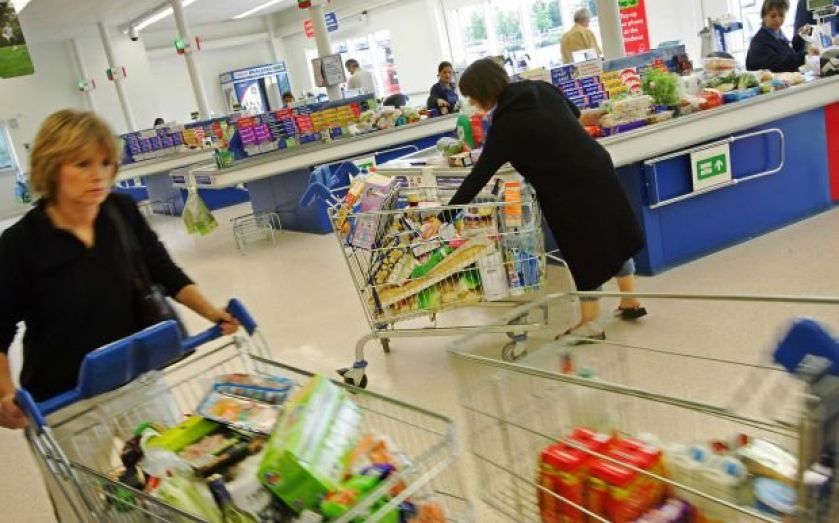UK inflation: Consumer price index rises to 1.3 pc

The rate of UK inflation rose to 1.3 per cent in the year to October 2014, recovering slightly from a suprise fall to 1.2 per cent the previous month.
Smaller declines in transport costs – such as motor fuels and and air fares – drove the increase. Oil prices have plummeted recently, but they have still fallen less than at the same time a year ago.
The release of a number of newer, more expensive computer games in the run-up to Christmas also boosted the toys and hobbies sector.
Nonetheless, food and alcoholic beverages fell 1.4 per cent as supermarkets continued to cut prices in a bid to attract shoppers. This led the sector to slip into negative territory for the first time in 20 years, according to data released today by Kantar Worldpanel.
Inflation, which remains well below the Bank of England's target of two per cent, continues to be a key focus for policymakers. In a speech on Monday, Andrew Haldane, chief economist at the Bank of England, said he was watching inflation expectations “like a dove".
Today's figure remains below the Bank of England's expectation of 1.4 per cent for October, outlined in its quarterly inflation report. However it also said inflation was likely to slump below one per cent in the next six months, primarily due to falling commodity prices. However, it added that:
Inflation is expected to remain below the target in the near term, and is more likely than not to fall temporarily below 1 per cent at some point over the next six months.
But while inflation has temporarily increased, analysts remain unconvinced. Rob Wood, chief UK Economist at Berenberg said:
It might seem odd that petrol prices pushed up inflation in October given falling pump prices, but the cost of filling up the tank had fallen even faster last October. Those odd ‘base effects’ will disappear over the next couple of months. So we expect further falls in petrol prices, along with utility companies keeping prices on hold, to drag inflation down to 1.0% by December.
Howard Archer, chief UK and European economist at IHS Insights added:
Given the current weakness of oil prices, the ongoing supermarket pricing battle and soft import prices, consumer price inflation could very well dip below 1.0 per cent in the near term. We expect inflation to be largely limited to a 1.0-1.5 per cent range through 2015 before starting to gradually firm at the end of next year.
The slight rise in consumer price inflation to 1.3% in October will do little to dilute recently markedly increased belief that the Bank of England will not be raising interest rates before the final months of 2015.
Scott Corfe, head of macroeconomics at the Centre for Economics and Business Research said:
The surprise uptick in inflation is likely to be very short-lived. The main driver of the rise was the fact that the annual decline in petrol prices was lower than in September, as well as increases in the price of computer games.
The overall outlook for inflation is extremely benign; food and motor fuel prices, which have historically been upward contributors to consumer price inflation, are currently having a downward impact of 0.3 percentage points.